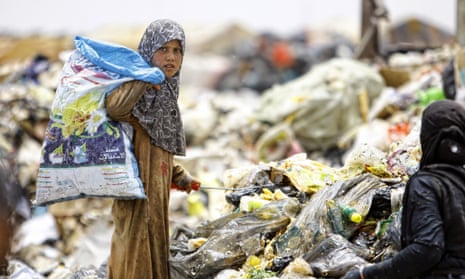Despite sending more than half their aid to countries marked by conflict, donor states have not been successful in promoting peace and building institutions, and this failure risks torpedoing efforts to lift the world’s most vulnerable people out of poverty, according to a new report.
States of Fragility 2015, which has been produced by New York University’s Center on International Cooperation (CIC) for the Organisation for Economic Co-operation and Development (OECD), says many countries will not be able to eradicate poverty if concentrated efforts to address fragility are not made now.
“To rise to the challenge of the post-2015 era, aid needs to be made smarter,” the report said, adding that the development debate offered a “historic opportunity” to make the international approach to fragility and financing “fit for purpose”.
“If institution-building and conflict reduction continue at their existing pace, by 2030 nearly half a billion people could remain below the poverty line of $1.25 a day,” it said.
While fragile states had made progress towards achieving the millennium development goals, as a group they lagged behind other developing countries: nearly two-thirds are expected to miss the goal of halving poverty by 2015, with just a fifth halving infant mortality and just over a quarter halving the number of people with no access to clean water.
The report said: “These trends point to a growing concentration of absolute poverty in fragile situations – today, the 50 fragile countries and economies monitored by the OECD are home to 43% of people living on less than $1.25 a day; by 2030, the concentration could be 62%.”.
Sarah Hearn, associate director and senior fellow at CIC, said the big flaw of the MDGs was that they did not directly address governance, conflict and fragility.
“A lot of aid has gone into health and education and social sectors, which is really important and a part of peace-building but there has been insufficient emphasis on security and justice and policing and politics, and those are really important areas for countries trying to exit conflict,” she said.
UN member states are due to meet in New York in September to finalise a new set of 17 goals and 169 targets – the sustainable development goals – that will set development priorities until 2030. The draft includes a target to promote peaceful and inclusive societies for sustainable development.
“Far greater international political will is needed to support nationally owned and led plans, build national institutions at a faster rate and help countries to generate domestic revenues and attract private finance,” the report said.
The report found that some countries received the lion’s share of the aid, which has nearly doubled over 15 years: Afghanistan and Iraq accounted for 22% of all official development assistance (ODA) sent to fragile states and economies.
Hearn said a new model of global monitoring would help to address such inequalities and improve efforts to prevent crises.
“Sierra Leone, Liberia and Guinea are a really important example of that ... They were actually aid orphans before the Ebola outbreak. Only about $9m was going into those countries for infectious disease control, and now of course it’s billions that are going to have to flood into the region,” she said.
The report also highlighted the critical role of remittances, which it said constituted the largest aggregate financial flow to fragile states. However, the benefits of money sent home by migrants were limited mainly to a small number of middle-income countries with large diaspora populations, such as Nigeria and Egypt.
Without international will to expand migration, poorer regions would continue to lose out, the report said. But Hearn acknowledged that the political environment now did not allow for a rational discussion on this.
“On a pragmatic level, we can cut the cost for migrants to transfer remittances. There are many costs associated with banking, and the war on terror,” she said, noting the example of Somalia, where millions have been affected by western banks’ decisions to close the accounts of money transfer firms because of fears the funds could find their way into the hands of extremists.
“We are in a globalised economy. Remittances have an important impact on development,” said Hearn. “(They are) probably as important, if not more important, than aid ... There is a long-term argument to be made about mutual benefit, building mutual economies, mutual trade.”
The list of fragile states analysed in the report range from conflict-ravaged countries like Yemen and Libya, through Afghanistan and Iraq to more stable states like Kenya and Cameroon.
Hearn said the list was controversial because it only looked at developing countries, and that the OECD hoped to adopt an alternative approach within three years to look at fragility on a universal level, including in rich and middle-income countries.
The report also highlighted the absence of an international norm to track peace and security spending, outside of UN peacekeeping costs, which stand at around $8.5bn a year, and official development assistance funding for security.
Hearn said some countries were concerned that an increased focus on peace-building and governance in the new SDGs could lead to more militarised and securitised aid.
“It’s something western donors are going to have to prove: that it’s not just about creating opportunities to flood money into Syria or Libya. It really is about building peace everywhere.”

Comments (…)
Sign in or create your Guardian account to join the discussion